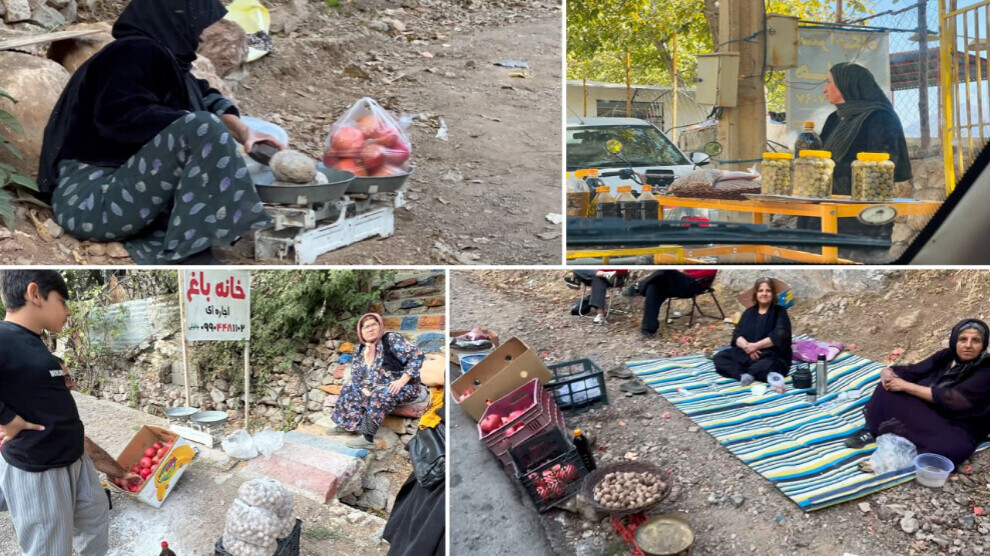The Silent Economy: Nowdeshah’s Women Turn the Land into Life
Nowdeshah thrives thanks to its women, the backbone of the local economy. Through farming, handmade crafts, and roadside sales, they quietly sustain livelihoods and transform the land into life, their contributions often absent from official reports

Somaya Rahimi
Bawa – As the road winds toward Nowdeshah the mountains draw closer. Here in Hawraman, morning mist and the scent of wet soil define the landscape. Nowdeshah is a small town clinging to the mountainside, with terraced stone houses and a river whose murmur fills the alleys.
In autumn, people along the roads maintain an old tradition: picking pomegranates by the roadside. This custom brings luck and blessings and signals to travelers that life here remains closely tied to the land and its harvest. The people of Nowdeshah do not fake familiarity; they live it. Independence, gardens, craftsmanship, and community work remain deeply rooted in daily life.
At first glance, this may seem simple, but behind the roadside stalls lies the true economy of the town. It is not based on factories or industrial enterprises, but on the labor of Nowdeshah's, women, who bear the dual burden of household and livelihood.
They work in the orchards, plant, harvest, process, and ultimately sell their products themselves. For many families, this income from the roadside covers living expenses, children’s education, and rent.
The mountain weather is harsh — scorching sun one moment, sudden rain the next — yet these women have no choice but to continue. Their presence in the local economy is quiet and invisible, yet essential. Often unrecognized, their contributions keep the town alive.
Women Give the City Its True Pulse
Amina M., 75, supports herself and her eight children by selling pomegranates and homemade preserves. She sits by the roadside, a basket of red pomegranates in front of her, calling to passersby, “These are the best pomegranates of Hawraman.” Her hands, wrinkled from years of labor, tell a story of long hardship.
“I have no steady income, no support, not even a pension,” she says. “When the pomegranate season ends, I make jam. One has no choice,” she says quietly, accepting a painful reality in silence.
Nearby, Asma A. sets up a colorful stall with one of her relatives. She warmly invites travelers to buy, explaining, “The orchard belongs to my husband — he picks the fruit, and we sell it. This is our only livelihood.”
Many travelers stop to photograph the women in Kurdish attire, often turning their photos into purchases. “If the vendors were men, this road would not pulse with life,” she remarks.
Beside her, a relative silently sorts pomegranates. She explains that the family has tended the orchards for twenty years, sitting at the roadside from early September through autumn. This year, high temperatures and low rainfall affected the pomegranates’ taste.
Even as the sun sets behind the mountains and the air turns colder, the women have not yet packed up their stalls — perhaps a last-minute customer will add something to the day’s hard-earned income, a quiet hope felt more than spoken.
Nowdeshah’s economy rests on the shoulders of its women — invisible in official reports, absent from public policy calculations — yet they give the town its real heartbeat. To truly know Nowsheh, stand by the roadside and watch how women, with cracked hands and vibrant clothes, turn the earth into a living, breathing life
